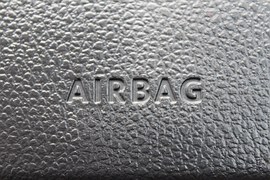
The National Highway Traffic Safety Administration (NHTSA) announced today that it is expanding its investigation into the matter of exploding air bags. The metal inflators that deploy the air bags upon impact expand too forcefully, spewing shrapnel into drivers and passengers.
The air bags in question, manufactured by Takata, are the subject of one of the largest product recalls in history. About 23.4 million inflators installed in vehicles manufactured by 12 companies are the subjects of the recall.
Eight people are known to have died and 98 more have been injured by the exploding air bags. The injuries have included deep cuts to the neck and face, loss of eyesight, broken teeth and hearing loss.
As of Oct. 9, 2015, only 22.5 percent of the vehicles involved in the recall have been repaired. Because of this slow pace, the NHTSA is thinking about managing the recall process to prevent more deaths and injuries among the driving public. The agency will announce its plan, if any, by the end of November.
One reason for the slowness of the recall is that only authorized dealers have been allowed to do the work. The NHTSA is looking into having independent repair companies to do the work, giving consumers many more options. In addition, the agency may designate a person to oversee this recall and deal with the auto manufacturers.
The problem with Takata air bags first came to light as a result of explosions in Toyota vehicles. However, the exploding Takata air bags are also found in vehicles and light trucks manufactured by:
- BMW
- FCA (Chrysler)
- Ford
- General Motors (GM)
- Honda
- Mazda
- Mitsubishi
- Nissan
- Subaru
The NHTSA website Safercars.gov provides a list of specific years and models affected by the recall.
The agency says that it will continue to prioritize older vehicles and those in warm, humid climates, as high humidity appears to make the inflators more likely to explode. This appears to be because the gas used to inflate the air bags can deteriorate over time, especially when exposed to humidity. Because of this focus, the replacement rate for vehicles in more humid climates, such as the Gulf Coast in the southern United States, is higher.
If you were injured as a result of an exploding air bag or any defective automotive component, find out about your legal options by speaking with an attorney who handles product liability cases.

